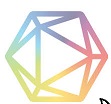Influence of Cooperative Learning Model Type Jigsaw on Understanding Mathematical Concepts and Students’ Self-Regulated Learning
Manja Ayu Sasmita, Tasnim Rahmat, Aniswita Aniswita, Gema Hista Medika
Abstract
This journal is motivated by students who still find it difficult to solve mathematical problems in the form of problems that lead to an understanding of the concept of a certain subject, so that students cannot answer the questions perfectly. The students' difficulties can be seen from the answers of students working on the concept of understanding problems given. Another situation that is also still happening in the field is the lack of awareness of students about the importance of learning mathematics, for example, there are still some students who when learning mathematics are just sitting in class without taking notes on the material. This is due to a lack of confidence, a sense of responsibility and initiative from students during the teaching and learning process. To overcome the above problems, and to improve students' understanding of concepts and Self-Regulated Learning, various efforts can be made by using a learning model that can actively involve students in learning. One of the learning models that can be used is the jigsaw-type cooperative learning model. Related to this, the researcher tried to conduct research on the influence of the jigsaw-type cooperative learning model on the understanding of mathematical concepts and Self-Regulated Learning of grade students. This type of research is a type of pre-experimental research. This study uses the research design of The Static Group Comparison. The population of this study is all grade VIII students of SMP Negeri 1 Bukittinggi in 2023/2024. The sampling technique used is random sampling first carried out normality tests, homogeneity tests, and average similarity tests of population data. The samples in this study are class VIII.A as the experimental class and class VIII.B as the control class. The research instruments used are Self-Regulated Learning questionnaires and tests for understanding mathematical concepts. The data analysis technique used is the t-test. The results of the study found that bakaghu religious activities have a deep meaning Based on the analysis of the data of the research results, it was obtained that the understanding of mathematical skills and Self-Regulated Learning of students who participated in learning with the jigsaw method was better than students who participated in learning with conventional methods in grade. The average score of the experimental class was 3.31 and the control class was 2.26. Meanwhile, the overall final average score in the experimental class was 57,54 and the control class was 45,04.
Keywords
Influence; Jigsaw Model; Concept Understanding; Self-Regulated Learning; Cooperative.
DOI:
http://dx.doi.org/10.58258/jisip.v9i2.8503
Refbacks
- There are currently no refbacks.
Copyright (c) 2025 Manja Ayu Sasmita, Tasnim Rahmat, Aniswita Aniswita, Gema Hista Medika

Ciptaan disebarluaskan di bawah Lisensi Creative Commons Atribusi-BerbagiSerupa 4.0 Internasional .
JISIP (Jurnal Ilmu Sosial dan Pendidikan)
p-ISSN:2598-9944, e-ISSN: 2656-6753
Jurnal ini diterbitkan olehLembaga Penelitian dan Pendidikan (LPP) Mandala.
Alamat : Jl. Lingkar Selatan, Perum Elit kota Mataram Asri Blok O. No. 35, Jempong Baru, Sekarbela, Kota Mataram NTB.

.png)




